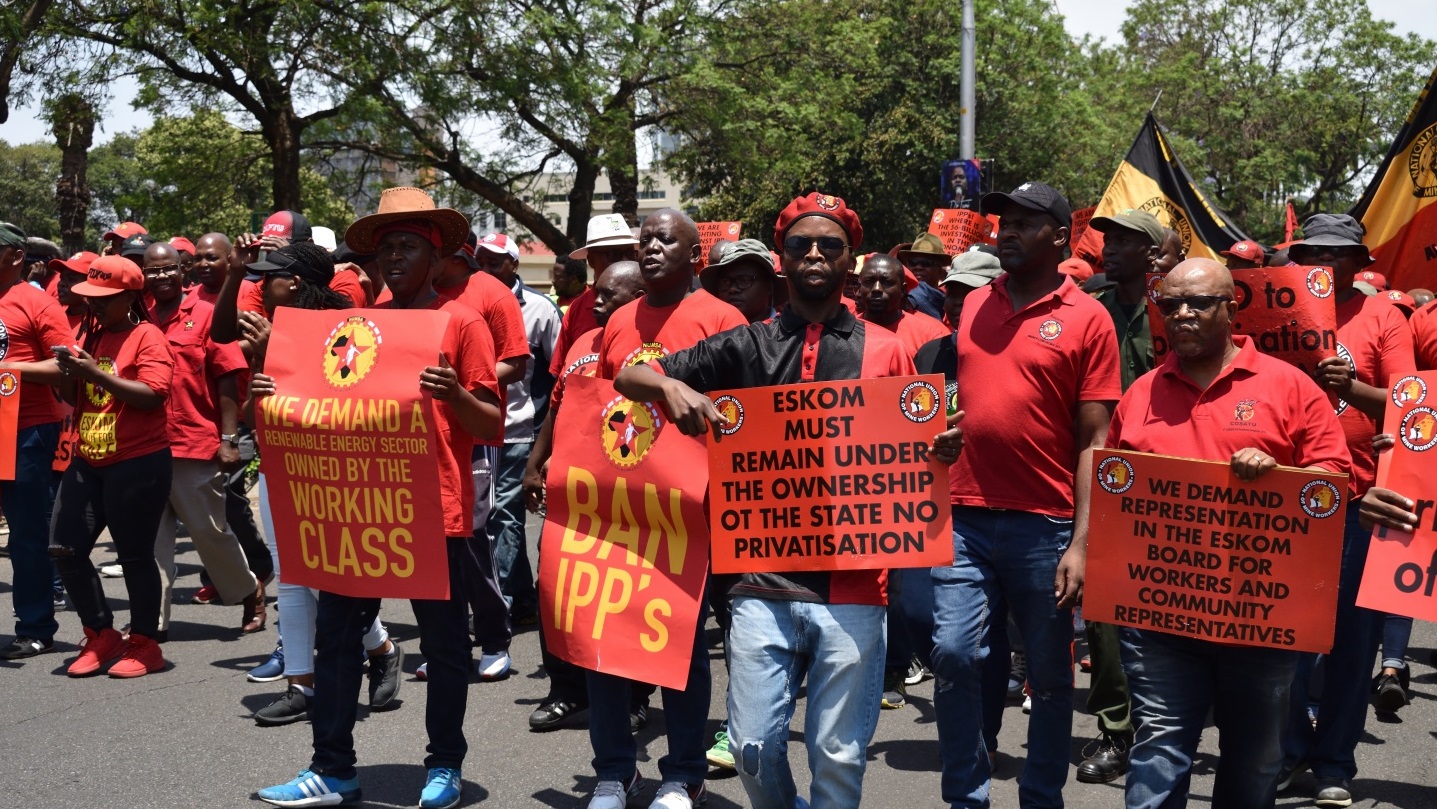In a crucial ruling on May 5, the North Gauteng High Court in Pretoria decided in favor of the National Union of Metalworkers of South Africa (NUMSA) and 18 other applicants seeking relief from severe power outages that have affected much of the country. It ordered the Minister of Public Enterprises to take “all reasonable steps” within 60 days to ensure that there is sufficient supply or generation of electricity to prevent any interruption due to load shedding to all public health establishments, all public schools, and the South African Police Service and police stations.
In March, the United Democratic Movement (UDM) and NUMSA joined political parties, trade unions, and civil society groups (UDM and Others) in calling upon the court to declare load shedding (or rotational power cuts) as unconstitutional, citing the infringement of certain rights, including those enshrined in the Bill of Rights.
As such, the application not only named the state-owned energy utility company Eskom, but also President Cyril Ramaphosa, the Ministers of Mineral Resources and Energy and Public Enterprises, and the South African government as a whole.
South Africa has been in the throes of a worsening electricity crisis as Eskom has struggled to meet the country’s energy demands for over 15 years, resorting to load shedding in the process.
Record power outages over the past year have inflicted major economic losses and disrupted access to crucial public services including hospitals. Conditions are set to worsen as electricity demands increase during the winter, with Eskom preparing protocols for Stage 9 load shedding, which could see outages lasting for over 14 hours a day.
The application submitted by UDM and Others is divided into two parts: Part A, which sought urgent relief and which was granted on Friday, called upon the Court to exempt the country’s critical sectors, including health care, from load shedding.
In the submission to the Court, the applicants “put forward extensive evidence of egregious breaches to the rights to life and access to health caused by load shedding,” with Dr. Lufuno Rudo Mathivha from the Chris Hani Baragwanath Hospital stating in her affidavit that “there have been several instances where patients succumb and the cause of death is described in many different ways in circumstances where the cause of death may actually have been due to load shedding.”
Similarly, the applicants outlined the impact of load shedding on the right to education, which are “particularly keenly felt in rural and township schools,” as noted in the judgment: “Iniquities created by our country’s past injustices are, by the simple act of load shedding, being perpetuated against a vulnerable segment of society”
In his affidavit to the Court, President Cyril Ramaphosa had stated that “none of the government respondents have a Constitutional responsibility to supply electricity to the people of the Republic.”
However, the applicants argued that it was because of the President’s obligation to respect and promote the Bill of Rights that he must respond to the “humanitarian crisis” of load shedding, emphasizing that “the fundamental rights entrenched in the Bill of Rights…cannot be given effect to without electricity.”
In its ruling, the Court declared “It is clear that, whatever the President and his cabinet Ministers averred, the consequences of policy decisions resulted in the current need by Eskom to continue to implement various levels of load shedding.”
The ruling added, “We find that there have been repeated breaches by the State of its Constitutional and statutory duties and that these breaches are continuing to infringe on citizens’ rights to healthcare, security, and education.”
“Even if the relief sought were to be considered as only amounting to an interim interdict, we find that a prima facie right has been established and that the interferences also create apprehensions of irreparable harm in the form of prejudice to the right to life…as well as other Constitutional rights…”
In a statement welcoming the judgment, NUMSA said, “This is a victory for the entire country, not just for NUMSA alone, but also for the entire working class.”
The applicants are now gearing up for the Court’s verdict on Part B of the application, which will be for final relief, seeking a comprehensive review of the actions of the government, the President, ministers, and Eskom as they relate to their failure to uphold their constitutional and statutory obligations to ensure a reliable supply of electricity.





